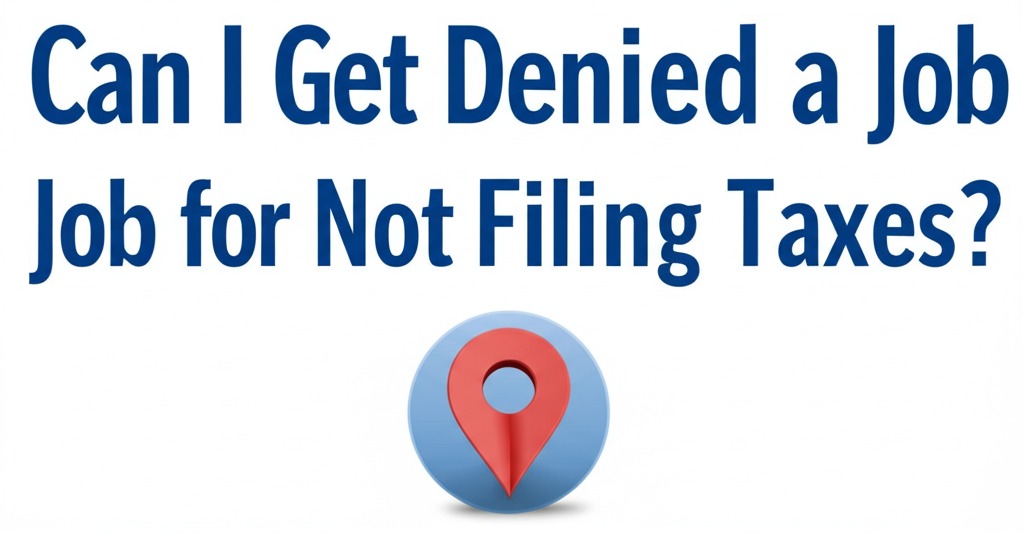
When applying for a job, various factors influence whether or not you’re hired—your qualifications, experience, and fit for the role. But one question that often comes up is whether failing to file taxes can impact your chances of landing that dream job. While it might seem unrelated to employment, not filing taxes could potentially affect your job prospects. In this article, we’ll explore how your tax filing status could play a role in job opportunities, and what steps you can take to prevent any issues.
What Employers Look for During the Hiring Process
Employers want to ensure they are hiring reliable and responsible individuals. During the hiring process, companies often conduct background checks to verify a candidate’s qualifications, criminal record, and financial stability. While failing to file taxes may not be a typical part of a standard background check, it could raise red flags depending on the nature of the job.
For example, positions involving financial management, handling large sums of money, or government roles may require candidates to have a clean financial record. Here’s a breakdown of how tax filing issues could impact specific jobs:
- Financial Jobs: Employers in banking, accounting, or finance industries may require proof of financial responsibility. Unfiled taxes can signal poor financial management, potentially making you seem less trustworthy.
- Government Jobs: Some government roles, particularly those with access to sensitive information, may require a background check that includes financial aspects. Not filing taxes could hinder your eligibility.
- Security Clearances: Jobs that require a security clearance often involve extensive background checks. Financial irresponsibility, including unpaid taxes, could disqualify you from receiving a clearance.
Can Employers Check Your Tax Filing Status?
In most cases, employers don’t directly check your tax filing status. However, they can inquire about your financial responsibility in the form of a credit report or other background checks, depending on the job. For example:
- Credit Reports: Some employers, particularly in finance or security, may request a credit report, which includes information about unpaid debts, including taxes. If you owe back taxes, this could show up and raise concerns.
- Background Checks: Certain employers may ask if you have a history of tax issues during the interview process. Honesty is key here, as misrepresenting your tax filing status could disqualify you from the job.
What Happens if You Haven’t Filed Taxes?
If you haven’t filed your taxes, the consequences can be more severe than just job prospects. The IRS can impose penalties, interest, and even take legal action for non-compliance. In addition to the potential for legal trouble, failing to file taxes may:
- Affect Your Credit Score: Unpaid taxes can negatively affect your credit, and this could be a factor that employers consider if they’re assessing your overall financial health.
- Create Legal Issues: If the IRS has filed a tax lien against you, it could become part of your public record, making it accessible to employers conducting background checks.
How to Fix the Issue Before Job Applications
If you’ve missed filing your taxes, here are the steps you can take to resolve the issue and avoid potential job rejections:
1. File Your Taxes Immediately
Even if you missed filing in previous years, it’s never too late to file your taxes. The longer you delay, the more penalties and interest you’ll accrue. Filing promptly can demonstrate your commitment to resolving the issue.
2. Set Up a Payment Plan
If you owe back taxes and can’t pay them in full, contact the IRS to arrange a payment plan. Showing that you’re taking steps to settle your debts can work in your favor during a background check.
3. Stay Transparent in Interviews
If a prospective employer inquires about your tax history, be honest. If you’ve already filed and are working through any issues, explain the situation calmly and provide evidence of your efforts to resolve it. Transparency and honesty can build trust with potential employers.
4. Seek Professional Help
If you’re unsure how to address your tax issues, it might be beneficial to consult with a tax professional or a lawyer. They can help you navigate the complexities of the IRS and ensure you’re on the right track.
Can Not Filing Taxes Get You Denied a Job?
The short answer is: It depends. Not filing taxes in and of itself may not automatically disqualify you from a job, but it could raise questions, especially if you’re applying for positions that involve financial responsibility or security clearances. Employers may not have access to your tax filing status directly, but they can uncover financial issues through credit reports or background checks.
For certain jobs—particularly those in finance or government sectors—employers may have more stringent requirements regarding your financial history. If you owe taxes, have a history of tax evasion, or are involved in legal battles with the IRS, these could be seen as signs of irresponsibility.
Conclusion: Resolve Your Tax Issues Before Applying for Jobs
In summary, while not filing taxes might not be an automatic disqualifier in most job applications, it can certainly complicate matters, especially for jobs in sensitive or high-trust areas. To avoid potential roadblocks, make sure to resolve any tax issues before applying for jobs, and be transparent with employers if questions arise.
If you’re currently facing issues with unpaid taxes or missed filings, it’s essential to address them sooner rather than later. By taking proactive steps to resolve your tax situation, you’ll improve your chances of securing the job you want without any tax-related hiccups.

Andre Cuevas provides career insights, job search strategies, and professional advice to help individuals navigate the job market and achieve their career goals.




